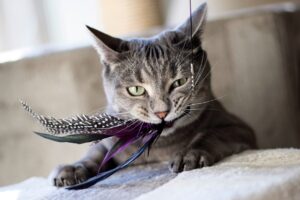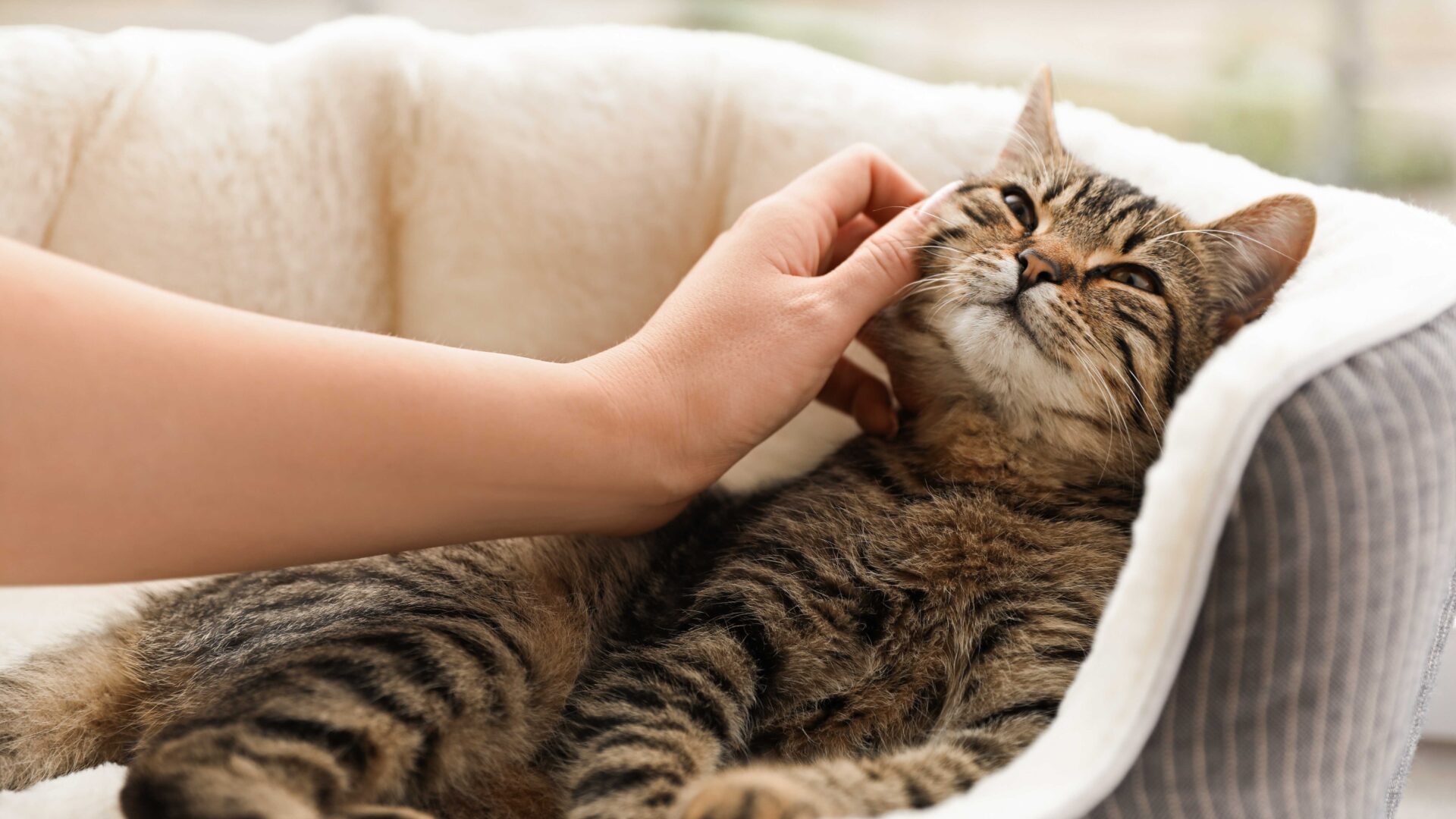Last Updated: 14/08/25
As our feline friends get older, their needs and preferences may change. Read on for our top tips for supporting your golden oldie.
On this page:
Comfort is key
Provide somewhere comfortable, warm and cosy for your cat to sleep that meets their specific needs.
Make sure everything they need is easily accessible, and provide extra water sources to help them stay hydrated throughout the day.
Your cat’s sleeping, scratching and feeding/watering spots should be within easy reach, and litter trays should be easy to get into, with lower sides and appropriate substrate. Non-slip mats and steps, so they can reach their favourite spots, are also helpful.

The right diet
Your cat’s dietary needs will change as they get older, and your vet will be able to advise you on the best options.
Monitor how much your cat is eating and drinking, and mention any changes in eating, drinking and toileting habits or weight to your vet to rule out underlying medical issues.
Older cats need easy access to food and should be fed little and often. They may experience a reduced appetite and weight loss, which can be caused by health issues, a decline in smell and taste or reduced gut efficiency. Some older cats can develop thyroid problems that may make them lose weight even though they’re eating well.
Ensure food and water bowls are at the ideal height for your pet. Cats often prefer to crouch and eat, so will be better suited to a lower, shallow sided bowl. Watching your pet eat will help you work out how they like their bowl placed.

Meet their changing needs
Letting your cat explore and play with toys and feeders also keeps them entertained and mentally stimulated.
Gentle grooming allows you to check for lumps, bumps, aches and pains, and helps older cats who may struggle to groom themselves properly.
If you notice that your cat’s coat is becoming unkempt or matted, let your vet know, as this can be a sign of underlying health issues.
Maintain a healthy lifestyle
Maintaining regular activity and a healthy weight gives your cat a better chance of looking and acting youthful – just like humans!
A decline in eyesight or hearing can cause confusion, so try to reduce changes in their environment and the layout of furniture. Check with your vet if you notice sudden changes to these.
Regular dental checks are essential for checking for signs of painful dental diseases.
Older cats might need their nails trimming more often, especially if they’re exercising less. If your cat struggles to retract their claws and they thicken or grow into the pad, our team will be able to help.
For further advice, please reach out to your local VetPartners practice.

